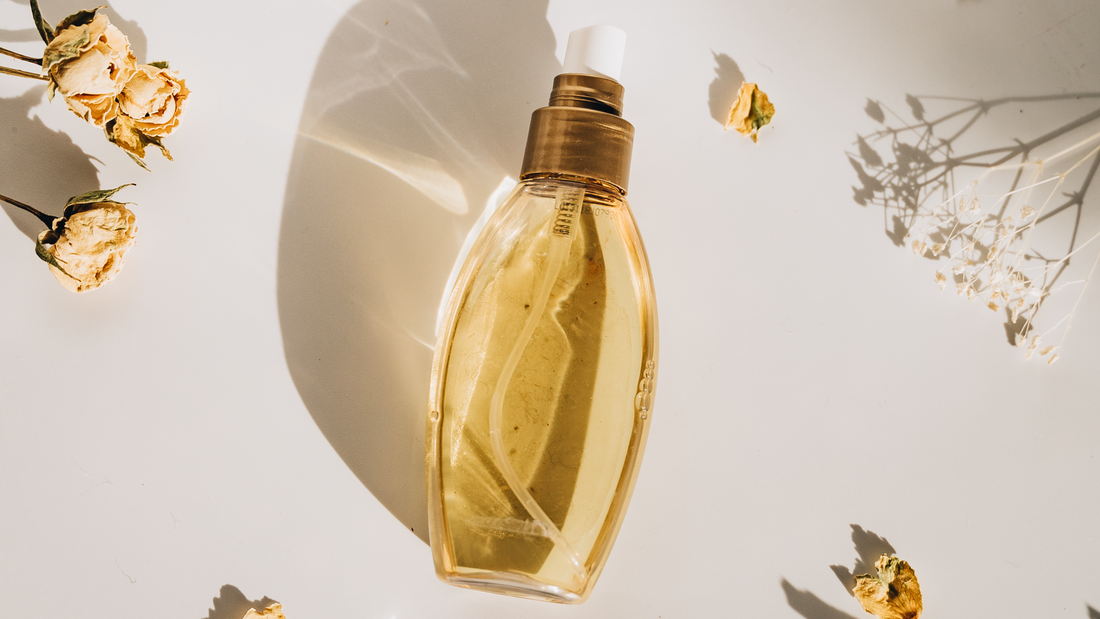There’s something truly enchanting about botanical perfume—its delicate, natural aroma transports you to lush gardens, deep forests, and blooming meadows. Unlike synthetic fragrances, botanical perfumes are crafted using only plant-based ingredients, making them a beautiful and eco-friendly alternative to conventional perfumes. Let’s explore what makes botanical perfume so special, along with some fun facts that might surprise you!
What Is Botanical Perfume?
Botanical perfume is made exclusively from natural plant extracts, including essential oils, absolutes, resins, and tinctures. These ingredients are derived from flowers, leaves, woods, and spices, creating rich, complex scents that evolve beautifully on the skin. Unlike synthetic fragrances, which rely on lab-made aroma compounds, botanical perfumes embrace the raw beauty of nature.
How Botanical Perfume Differs from Synthetic Perfume
🌿 Ingredients: Botanical perfumes are free from artificial chemicals and instead use plant-derived essences. In contrast, synthetic perfumes are often made with lab-created molecules designed to mimic natural scents.
🌿 Scent Evolution: Because botanical perfumes are made from natural extracts, they tend to evolve throughout the day, interacting with your body chemistry in a unique way. Synthetic perfumes, on the other hand, use fixatives to maintain a more static scent profile.
🌿 Eco-Friendly & Gentle: Botanical perfumes are biodegradable and free from harmful chemicals, making them a better choice for the environment. Many synthetic perfumes contain phthalates and other potentially harmful additives.
🌿 Subtle & Personal: Botanical fragrances are often softer and more intimate than their synthetic counterparts, creating a scent that is unique to the wearer rather than overpowering a room.
The Ancient Origins of Botanical Perfume
Botanical perfume is far from a modern trend—people have been using plant-based scents for thousands of years!
✨ Ancient Egypt (3000 BCE+): Egyptians were masters of botanical perfumery. They used fragrant oils in religious ceremonies, beauty rituals, and even in embalming practices. Kyphi, one of the oldest known perfumes, was a blend of myrrh, frankincense, cinnamon, and honey, burned as incense and applied as a body scent.
✨ Mesopotamia (2000 BCE+): The first recorded perfume maker was a Mesopotamian chemist named Tapputi, who distilled flowers, myrrh, and balsam to create fragrant oils. Her methods laid the groundwork for modern perfume-making.
✨ Ancient India (1500 BCE+): Ayurvedic texts mention the use of sandalwood, jasmine, rose, and other plant essences in spiritual rituals and daily grooming. Attars (natural perfumes made through distillation) were highly prized and remain a part of Indian perfumery today.
✨ Ancient Greece & Rome (500 BCE+): Greeks and Romans adored botanical perfumes and often infused olive oil with herbs and flowers like rosemary, lavender, and rose. Perfume was used to scent bodies, homes, and even clothing. The Romans also developed glass perfume bottles to store these precious scents.
✨ China (Tang Dynasty, 600 CE+): Chinese herbalists created botanical perfumes using agarwood, camphor, and osmanthus. Perfumed sachets were worn as accessories to promote good health and ward off evil spirits.
✨ Medieval & Renaissance Europe (1100-1600 CE): Botanical perfumes became a luxury in medieval Europe, with apothecaries crafting blends of rose, orange blossom, and musk. During the Renaissance, perfume-making flourished in France and Italy, paving the way for the modern perfume industry.
Fun Facts About Botanical Perfume
🌸 Natural Mood Boosters: Many botanical perfume ingredients, such as lavender, jasmine, and citrus oils, have aromatherapeutic benefits. They can help reduce stress, improve focus, and uplift your mood.
🌱 Sustainability Factor: Botanical perfumers often use ethically sourced ingredients, supporting fair trade practices and sustainable farming. Some brands even create perfumes using upcycled plant materials!
🍷 No Two Are the Same: Since botanical perfumes are made from natural ingredients, variations in climate and harvest conditions can subtly change the scent from batch to batch—just like fine wine!
Why Choose Botanical Perfume?
If you love the idea of wearing a fragrance that is both natural and artisanal, our botanical perfume is for you! Whether you’re drawn to fresh, citrusy scents, deep, woody notes, or soft florals, there’s a botanical perfume out there to suit your style. Plus, knowing your fragrance is crafted from nature’s finest ingredients makes wearing it even more special.
Are you ready to experience the beauty of botanical perfume? Click here to shop!

